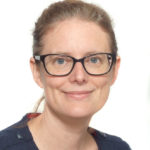CLASS TEACHERS:


Polar Bears Class
Teaching Assistants:
Y6 Pelicans: Mrs E. Tulip / Y6 Polar Bears: Mrs E. Gawn
Our Timetable

Our Curriculum
Our learning journey in Year 6 is a blend of year group and whole school projects. Below is a short description of each project accompanied by the project planners, which details the key texts, vocabulary, subject coverage and expected outcomes.
Autumn Term
Autumn 1 – Why was Athens so powerful around 500BC?
In our history we ask key questions such as: What was it about the position of Athens that made it successful?
What can we work out about everyday life in Ancient Athens?
Why was Athens able to be so strong in the 5th and 6th Century BC?
Why was The Battle of Marathon so important to the success of Athens?
We start by looking at the myths and legends of Ancient Greece, then a speech inspired by the battle of Marathon, and finally we answer our Big Question by writing a non-chronological report.

Autumn 2 – How do we reflect on conflict?
This half term we look at how we remember conflict and the sacrifices made by those who have fought (including WW1 and WW2). We will be focussing on Remembrance Sunday, our own Remembrance service and the significance of these moments in the country’s life. Our Big Question will be answered through poetry writing and art.

Spring Term
The whole school begins the Spring Term with a Space project.
Spring 1 – What can you see in space?

Spring 2 – What does it mean to be healthy? Why do Christians think Jesus was resurrected

For the final three weeks the whole school learn about a different aspect of Easter.

Summer Term
During the Summer Term, the theme for the whole school is ‘Look Around.’ Learning across the whole school is led by Geography.
What is the difference between weather and climate?

Reading
In Year 6 your child will be developing into an increasingly fluent reader. The focus will now be on building comprehension, but it is still important that children use their phonics skills to tackle new words. There are plenty of opportunities for the children to read for pleasure and we link this to our use of the Accelerated Reader software where children are encouraged to ‘quiz their books in order to reach their targets.
Useful websites include: www.readingeggspress.co.uk
www./worldbook.kitaboo.com/reader/worldbook
Writing
By the end of Y6 a child should be able to write down ideas quickly and for a range purposes. The grammar and punctuation should be broadly accurate, a Grammar, Punctuation and Spelling are tested through SATS in May each year. There is a list of spellings for Year 5 and 6 these can be found on the following: https://assets.publishing.service.gov.uk/media/5a7ccc06ed915d63cc65ce61/English_Appendix_1_-_Spelling.pdf
Other useful websites are:
YEAR 6 SATS Information for parents: https://www.yearsix.co.uk/year-6-sats-guide-for-parents/#:~:text=Year%206%20SATs%20results%20are,learnt%20in%20english%20and%20maths.
www.teachitprimary.co.uk/writing-composition-ks2
Maths
In Year 6, your child will continue to develop their mental and written calculation skills using larger numbers, decimals and fractions. They will also use problem solving and reasoning skills to solve worded problems. They will convert between units of measurement, find perimeters and areas, and learn more about angles and symmetry. Maths is tested as part of the SATS in May.
YEAR 6 SATS Information for parents: https://www.yearsix.co.uk/year-6-sats-guide-for-parents/#:~:text=Year%206%20SATs%20results%20are,learnt%20in%20english%20and%20maths.
Homework
Maths and English: The children are set pages to complete from the CPG Reviion and Workbooks. This needs to be completed and brought into school every Friday.
Reading: 20 minutes reading each night
Spellings: Weekly spellings practice for a spelling test on Friday
To find out more about your child’s curriculum please contact your child’s class teacher or click this link to go to the national curriculum.



